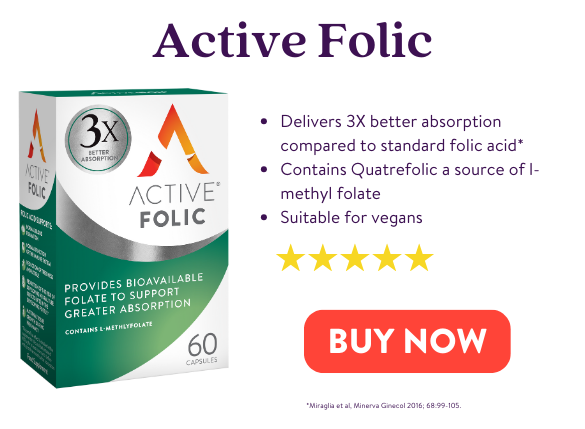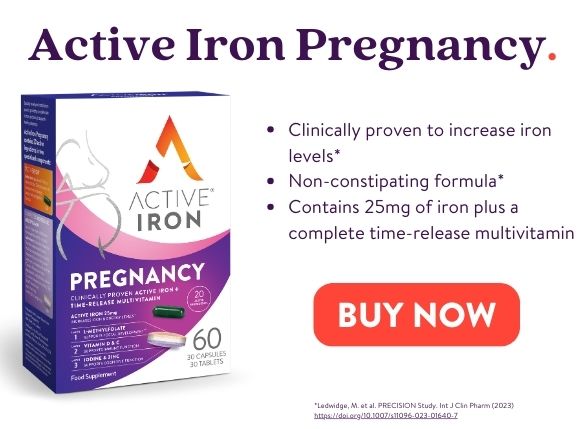Pregnancy is a critical time for both mum and the developing baby. Vitamins and nutrients play a significant role in supporting a healthy pregnancy. In this blog I explore why vitamins are important during pregnancy, the key vitamins and nutrients needed, foods to eat and avoid, the best supplements for pregnancy, potential side effects of multivitamins, and when to start taking vitamins.
Why Take Vitamins During Pregnancy?
During pregnancy, the body requires more nutrients to support the growing baby and maintain mum’s health. Vitamins and minerals are vital for various bodily functions, including cell growth, immune function, and brain development. Prenatal vitamins may help fill nutritional gaps, particularly those with restricted diets, ensuring that both mum and baby receive essential nutrients.
Most Important Vitamins During Pregnancy
Vitamin D
Vitamin D contributes to normal absorption/utilisation of calcium and phosphorus supporting the baby’s bone development.
Vitamin C
Vitamin C is an antioxidant that supports normal function of the immune system, improves iron absorption, and supports normal collagen formation for the normal function of bones and cartilage.
B Vitamins
B vitamins, including B6, B12, and folic acid (B9), are essential for energy production, brain function, and the formation of red blood cells. Folic acid, in particular, is critical in reducing the risk of neural tube defects in the developing baby, This beneficial effect is obtained with a supplemental folic acid daily intake of 400 μg for at least one month before and up to three months after conception.
Vitamin E
Vitamin E acts as an antioxidant, protecting cells from oxidative stress (cell damage).
Other Essential Nutrients
Omega-3 Fatty Acids (DHA)
Docosahexaenoic acid (DHA) maternal intake contributes to the normal development of the eye and brain of the foetus and breastfed infants.
Calcium
Calcium is necessary for the development of the baby’s bones and teeth. It also supports the mother’s bone and teeth health throughout pregnancy.
Iron
Iron is an essential mineral and supports maternal red cell production. Iron is one of the most recommended vitamins in pregnancy by doctors and midwives, as up to 40% of pregnant women worldwide have low iron levels*
Probiotics
Probiotics promote a healthy gut microbiome, which can improve digestion.
Zinc
Zinc contributes to normal DNA synthesis and has a role in the process of cell division.
Foods to Eat During Pregnancy
Eating a balanced diet rich in vitamins and minerals is crucial. Here are some nutrient-dense foods to include:
- Leafy greens (spinach, kale): Rich in folate and iron.
- Citrus fruits (oranges, strawberries): High in vitamin C.
- Dairy products (milk, yogurt): Good sources of calcium and probiotics.
- Fatty fish (salmon, sardines): High in omega-3 fatty acids.
- Nuts and seeds (almonds, sunflower seeds): Provide vitamin E and healthy fats.
- Lean meats (chicken, turkey): Excellent sources of B vitamins and protein.
Foods to Avoid During Pregnancy
Certain foods can pose risks during pregnancy and should be avoided:
- Raw or undercooked seafood: Risk of foodborne illnesses.
- Unpasteurized dairy products: Can contain harmful bacteria.
- High-mercury fish (shark, swordfish): Mercury can harm the baby’s developing nervous system.
- Processed meats (deli meats): Risk of listeria contamination.
- Caffeine and alcohol: Limit caffeine intake to 200mg per day and avoid alcohol to prevent developmental issues.
Best Supplements for Pregnancy
Prenatal Vitamins
Prenatal vitamins are specially formulated to provide the essential nutrients needed during pregnancy. They typically contain folic acid, iron, calcium, vitamin D, and other vital vitamins and minerals. Active Iron Pregnancy contains non-constipating Active Iron plus a complete time-release multivitamin providing all the key nutrients for mum and baby.
DHA Supplements
DHA supplements ensure adequate omega-3 intake, supporting the baby’s brain and eye development. For pregnant and lactating women the beneficial effect is obtained with a daily intake of 200mg of DHA in addition to the recommended daily intake of omega-3 fatty acids for adults, i.e: 250mg DHA and EPA.
Calcium Supplements
If dietary intake is insufficient, calcium supplements can help meet the increased needs during pregnancy.
Side Effects of Multivitamins During Pregnancy
While multivitamins are generally safe, some women may experience side effects such as nausea, constipation, or stomach upset. To minimise these effects, take vitamins with food and stay hydrated. If mums are concerned about any side effects occur, consult a with your doctor or midwife.
When Should You Start Taking Vitamins for Pregnancy?
It’s recommended to start taking prenatal vitamins before conception and continue throughout pregnancy and breastfeeding. This ensures that the body has adequate nutrient stores to support the baby’s development from the earliest stages. To find out the best time of day to take vitamins, read more here.
Additional Nutrients and Minerals for a Healthy Pregnancy
Beyond the essential vitamins and nutrients mentioned, consider including:
- Iron: Supports increased blood volume. Active Iron Advance contains 25mg of iron, helping to support women’s iron levels throughout pregnancy
- Magnesium: Contributes to normal muscle function and normal function of the nervous system, as well as the reduction of tiredness and fatigue.
- Iodine: Crucial for thyroid function and the baby’s brain development.
- Selenium: Plays a role in the normal function of the immune system, and normal thyroid function.
Conclusion
Maintaining proper nutrition through a balanced diet and prenatal vitamins is essential for a healthy pregnancy. Ensure you get adequate amounts of vitamin D, C, B vitamins, vitamin E, omega-3 fatty acids, iron, calcium, and zinc. Consult with a healthcare professional to tailor your supplement regimen and address any concerns about side effects. Starting prenatal vitamins early and focusing on a nutrient-rich diet can significantly contribute to the health and well-being of both mum and baby. All our bodies are different, but having the informed knowledge is power when it comes to making the best decisions for you and your body.
*WHO global anaemia estimates: Anaemia in women and children (2021)

Marie Louise, The Modern Midwife
BSc (Hons) RM & PTTLS
Marie Louise, a seasoned midwife with over 12 years of experience and a mother of two, is the accomplished author of ‘Pregnancy, Birth & Beyond’ and ‘The Modern Midwife’s Guide To The First Year’. Additionally, she excels as a hypnobirthing and Childbirth Educator.
Read more about our expert here.



